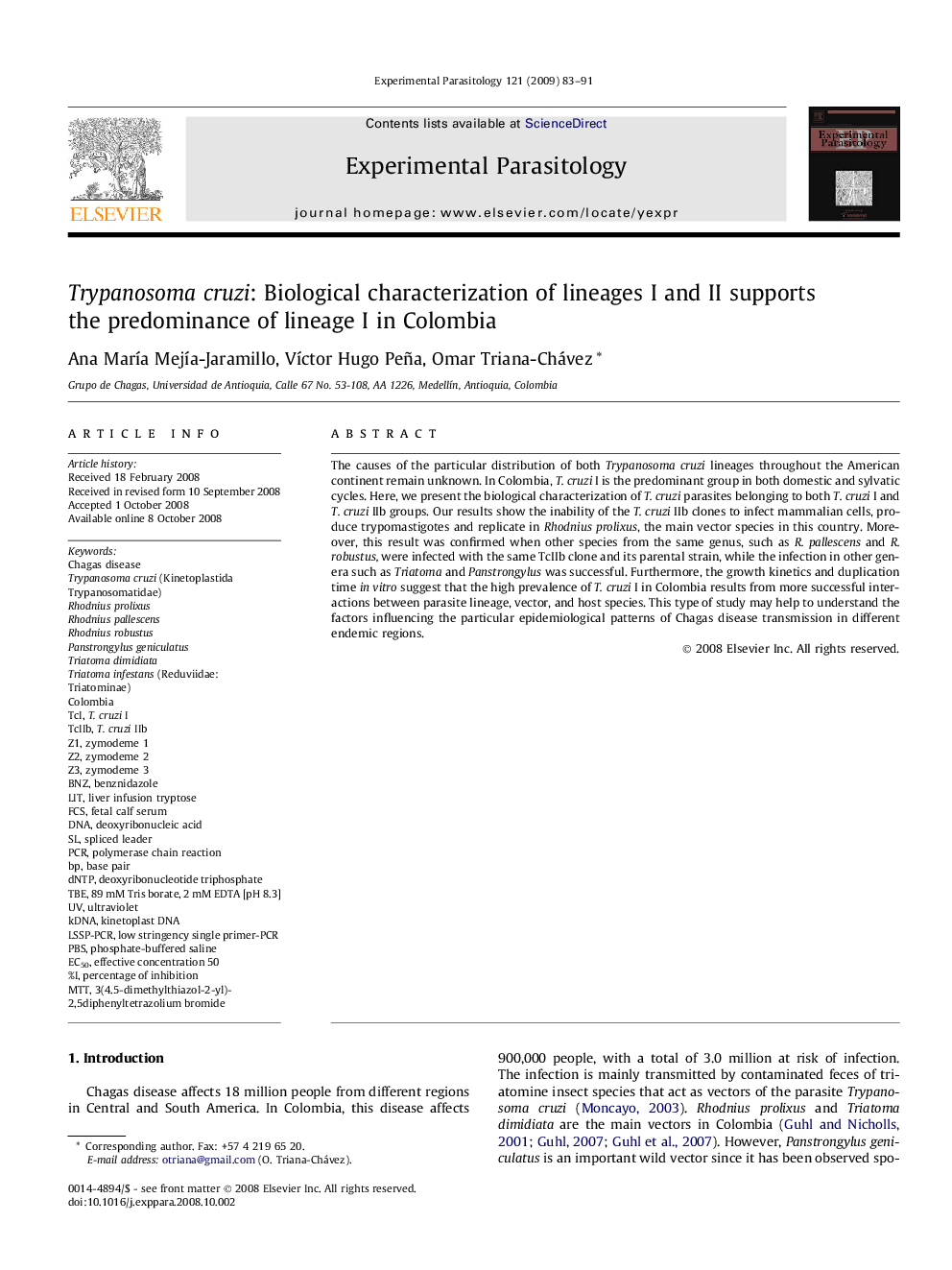| Article ID | Journal | Published Year | Pages | File Type |
|---|---|---|---|---|
| 4372042 | Experimental Parasitology | 2009 | 9 Pages |
Abstract
The causes of the particular distribution of both Trypanosoma cruzi lineages throughout the American continent remain unknown. In Colombia, T. cruzi I is the predominant group in both domestic and sylvatic cycles. Here, we present the biological characterization of T. cruzi parasites belonging to both T. cruzi I and T. cruzi IIb groups. Our results show the inability of the T. cruzi IIb clones to infect mammalian cells, produce trypomastigotes and replicate in Rhodnius prolixus, the main vector species in this country. Moreover, this result was confirmed when other species from the same genus, such as R. pallescens and R. robustus, were infected with the same TcIIb clone and its parental strain, while the infection in other genera such as Triatoma and Panstrongylus was successful. Furthermore, the growth kinetics and duplication time in vitro suggest that the high prevalence of T. cruzi I in Colombia results from more successful interactions between parasite lineage, vector, and host species. This type of study may help to understand the factors influencing the particular epidemiological patterns of Chagas disease transmission in different endemic regions.
Keywords
Related Topics
Life Sciences
Immunology and Microbiology
Parasitology
Authors
Ana MarÃa MejÃa-Jaramillo, VÃctor Hugo Peña, Omar Triana-Chávez,
